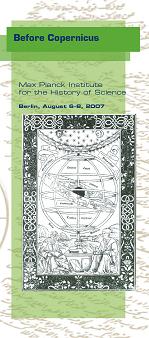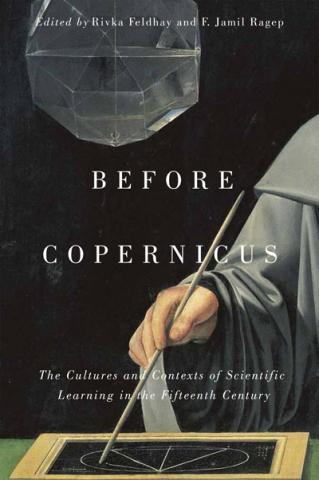The project aims to investigate the encounter and cross-fertilization among the Eastern and Western learning traditions that constituted astronomical knowledge in the century before Copernicus and had an impact on his work. The Working Group consists of scholars specializing in history of astronomy, history of science, intellectual history, and cultural history of the Islamic, Byzantine-Greek, Jewish, and Western European traditions. Geographically, the scope of the project stretches from Samarkand and Istanbul to Eastern, Central, and Western European countries.
The main questions posed by the Working Group are: (1) What was the status of astronomical models in the Eastern and Western astronomical traditions? (2) What was the relationship of astronomy to mathematics and to physics, and what was the epistemological status of astronomical arguments in those traditions? (3) How was the relationship between appearances and theoretical presuppositions conceived? What was the status of the unobservable or invisible in astronomy? (4) What was the status of the principles of motions in astronomy—physical or metaphysical—and how were these related to the understanding of terrestrial motion? (5) What was the social status of astronomers and how was it related to astrological and medical practices? (6) How could models of writing, reading and publishing in Europe affect the reception of the work of Copernicus? (7) What was the image of Islam and the Ottomans among Europeans in the fifteenth century and how could it affect the reception of Islamic traditions?
The first meeting of the group took place in December 2006, the second in August 2007, and the third in December 2008. As with other MPIWG Working Groups, the meetings focus on the discussion and revision of precirculated papers. The final product will be a collectively authored book that will offer a re-evaluation of the rich conversation between different traditions and disciplines that constitutes the relevant context for interpreting Copernicus' contribution.
Members:
- Nancy Bisaha (Vassar College, USA)
- Christopher S. Celenza (Johns Hopkins University, USA)
- Raz Chen-Morris (Bar Ilan University, Israel)
- Ihsan Fazlioglu (Istanbul University, Turkey)
- *Rivka Feldhay (Tel Aviv University, Israel)
- Maria Mavroudi (Princeton University, USA)
- Robert Morrison (Whitman College, USA)
- *Jamil Ragep (McGill University, Canada)
- *Sally P. Ragep (McGill University, Canada)
- Michael Shank (University of Wisconsin at Madison, USA)
- Edith Sylla (North Carolina State University, USA)
(* indicates Working Group members who were also Visiting Scholars at the MPIWG in connection with the Before Copernicus project)


